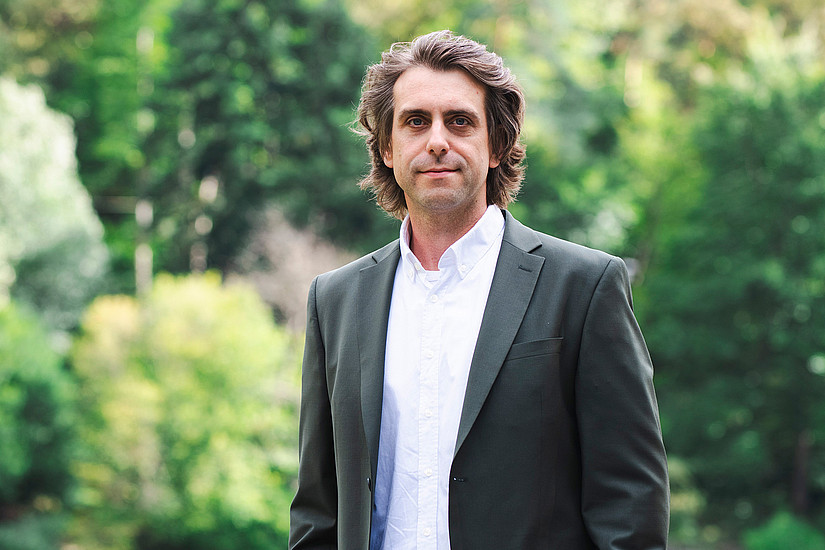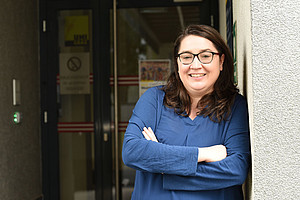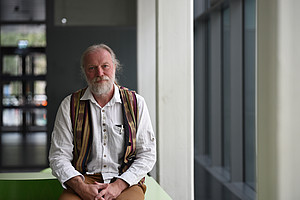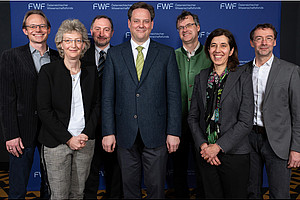"What is liberalism, except soon no longer in parliament?" tweeted Jan Böhmermann in mid-2020. "The liberal idea has often been declared dead. Some say it is too individualistic, too radically pro-market, others that it has died," says Julian Müller. "The competition between ideologies is entering a new round. Chinese-style communist authoritarianism is upgrading its technology and national populism is gaining ground. The question of what liberal cosmopolitans stand for has returned with a vengeance," says the philosopher, describing current developments.
Are you liberal? When Müller asks his students this question, he rarely gets a clear answer: "I don't know ... rather not ... yes, but ... Is it because many don't even know what it means? Even in academia, there is hardly any work on this question. One more reason why the Professor of Political Philosophy has made the examination of the basic principles of liberal thought patterns and thought structures a focal point of his research.
Complex instead of simple
According to Müller, the basic liberal idea can be easily defined in contrast to populism and nationalism. "At its core, populism can be summed up in the following formula: Everything is actually quite simple, you just have to do it! But if everything is so simple, why isn't it done? Well, because the elites are up to no good." If we are not aware of what makes populism tick, we might think that it can be reconciled with a liberal democracy. But this is wrong, warns the philosopher.
"Because liberal democracy is based on the insight that most social problems are complex. And that in many cases our minds are not sharp enough to know in advance what is best to do in the face of major challenges such as corona, migration or AI." This is all the more true in a globalised, interconnected world. "That's why it's so difficult to reach political agreement. In a liberal democracy, controversy is part of it. That's why one of the core tenets of liberalism is that it recognises reasonable differences of opinion," says Müller.
Truth instead of wishful thinking
One of the pillars of liberalism is the pursuit of truth, as opposed to unrealistic wishful thinking. "It's about doing what reason dictates, not what makes us feel good, what is popular," emphasises the researcher, citing an example: "In light of current political developments, refusing to modernise the military in the wishful thinking of being able to stay out of everything, would not secure peace in the long term, but would encourage authoritarian regimes to expand their sphere of influence."
Equality and human dignity
A second pillar of liberalism is universalism, the equal dignity of all people. "This is why liberalism and nationalism are not compatible. Because the latter exalts the members of one's own nation and devalues others," explains Müller. The native German, who also spent many years researching and living in China, uses a computer analogy to describe what the equality of all people is all about: "All of us had different programmes installed on us as children: A language programme, a spell-checking programme, one for solving mathematical problems, one with political thought patterns and others. These programmes are what make us different. But our operating system is the same." Some of us were lucky enough to be born in Germany or Austria. Others had the misfortune to grow up in contexts of war, hunger and natural disasters. "Keeping this basic truth – that at a certain level, we are all the same – present in our thoughts and feelings is an essential characteristic of a liberal attitude," says Julian Müller.




